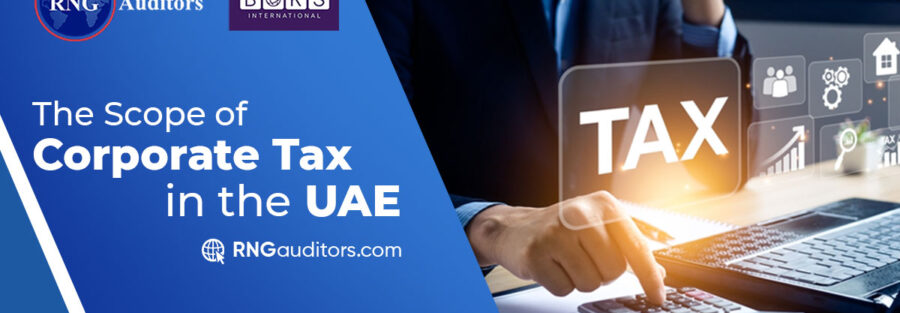The United Arab Emirates (UAE) has long been renowned for its business-friendly environment, characterized by minimal Corporate Tax . One of the most attractive aspects of doing business in the UAE has been the absence of a corporate tax regime for most companies. However, recent changes in tax legislation have brought about a new landscape in terms of corporate taxation. Let’s go through the scope of UAE corporate tax.
Introduction to UAE Corporate Tax
In the past, the UAE has been a tax haven, attracting businesses and entrepreneurs worldwide due to its tax-free environment. This fiscal framework was particularly appealing for corporations, which enjoyed the benefits of a zero percent corporate tax rate. This meant that businesses in the UAE could retain all their profits without any obligation to pay corporate income tax to the government. Nonetheless, the UAE introduced significant tax reforms in recent years to align with international standards and diversify its revenue sources. One of the major reforms was the introduction of corporate taxation through Economic Substance Regulations (ESR) and the implementation of Value Added Tax (VAT).
Scope of Corporate Tax
Under the Economic Substance Regulations (ESR), certain business activities are subject to corporate tax in the UAE. These activities primarily include:
- Banking Businesses: Financial institutions, such as banks and investment firms, are subject to corporate tax.
- Insurance Businesses: Insurance companies fall under the scope of corporate taxation.
- Lease Finance Businesses: Companies engaged in lease financing activities are subject to corporate tax.
- Fund Management Businesses: Entities involved in fund management are also liable to pay corporate tax.
- Shipping Businesses: Companies operating in the shipping sector are included in the scope of corporate taxation.
- Headquarters Businesses: Businesses functioning as headquarters that provide certain services to their group companies may be subject to tax.
Exceptions to Corporate Tax
While many business activities are now subject to UAE corporate tax, there are exceptions and special cases. Here are three noteworthy exceptions: Entities Working in Natural Resource Extraction Businesses involved in the extraction of natural resources, such as oil and gas companies, are typically exempt from corporate taxation in the UAE. The country derives a significant portion of its revenue from the oil and gas industry, and these companies are subject to separate royalty and taxation arrangements. Organisations Registered in Free Trade Zones Free Trade Zones (FTZs) in the UAE have been a magnet for foreign businesses due to their favorable tax and regulatory environments. While some FTZs have introduced nominal taxes or fees, many businesses within these zones are still exempt from corporate tax. However, it’s important to note that the specifics of tax exemptions can vary from one FTZ to another, and businesses should carefully review the regulations of the respective FTZ where they operate. Those with Earnings in a Personal Capacity Individuals earning income in their personal capacity, such as through employment or self-employment, are not subject to corporate tax. Instead, they may be subject to personal income tax depending on their residency status and other factors. The scope of UAE corporate tax has evolved significantly in recent years. While the country continues to offer an advantageous tax environment for many businesses, certain sectors and activities are now subject to corporate taxation under the Economic Substance Regulations. It is crucial to stay informed about the latest developments in tax legislation to ensure compliance with UAE tax regulations. As the UAE strives to diversify its economy, businesses should also anticipate potential changes in tax policies and continue to adapt their strategies accordingly.



